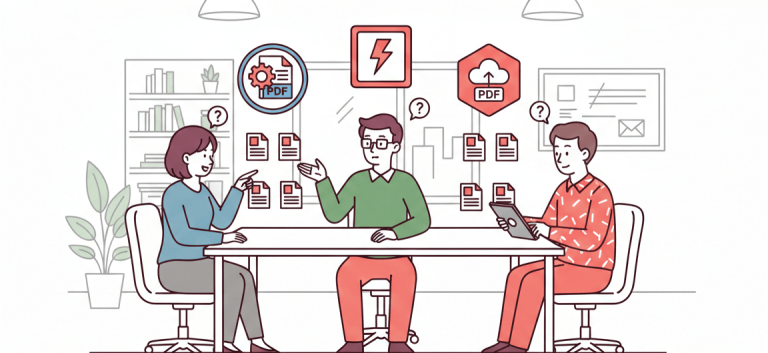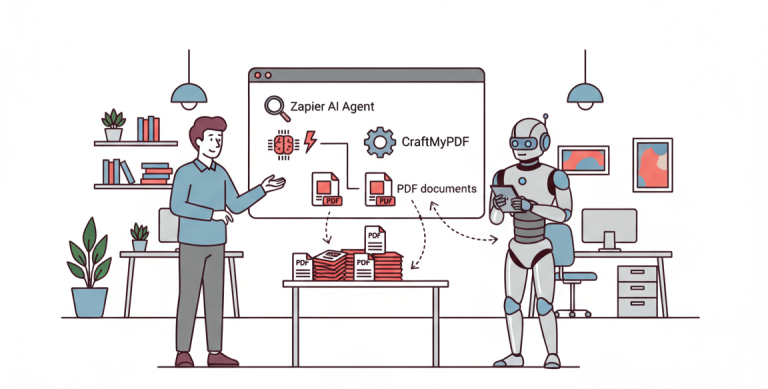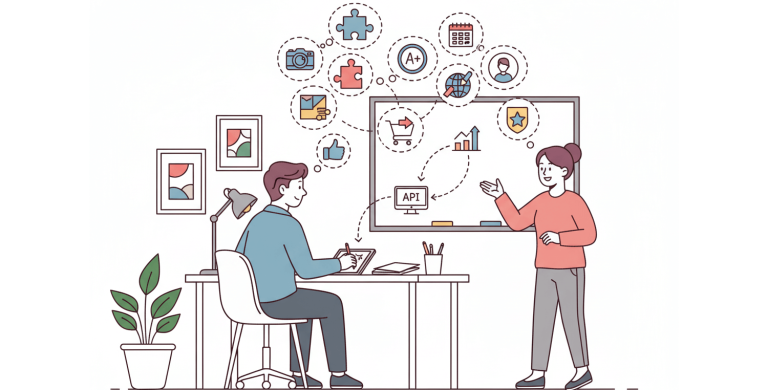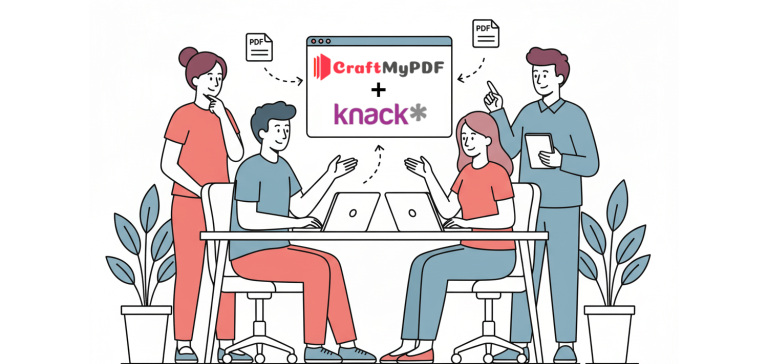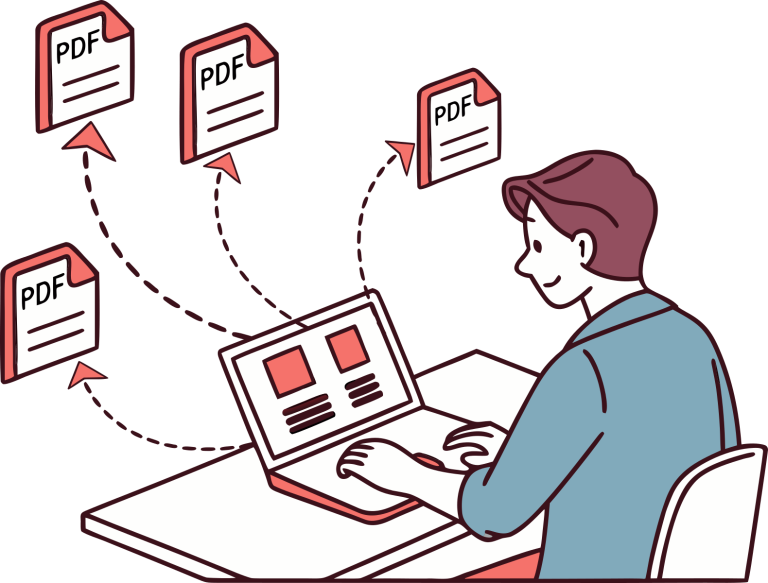
For decades, most businesses have followed a model in which everyone spends a significant portion of their day studying and creating contracts and other extensive legal documents.
Documentation is required for everything from device information to internal SOPs, packing slips, invoices, and so on. However, creating and maintaining this data is a difficult task that can be made easier with document automation technology. You will waste too much time arranging complicated material and producing useable data if you do not use documentation automation.
Let’s look at some of the many features of document automation and how it can assist you in improving organizational efficiency.
What Is Document Automation?
Automation is the use of technology to lessen the amount of human help necessary for a certain operation or process. The drafting of a document is mechanized in document automation. Customized papers are prepared using questionnaire responses or data supplied from another system.
Users create what are known as ‘template’ documents in document automation systems, and this process is made easier when combined with PDF generation API.
The Components of Document Automation
Document automation software often includes features that simplify the process of generating, collaborating on, and managing documents. The components include the following:
i. Client Intake or Data Collecting
When information from client intake forms is automatically imported into current client database software, an automated client intake process substantially boosts efficiency.
Automated client intake forms can be used to produce boilerplate letters such as acknowledgment letters and client engagement agreements, in addition to uploading information to client database systems.
Using technology to perform standardized form drafting streamlines the client intake process, saves time and money on both sides of the transaction, and improves communication between the company and the client.
ii. Types of Document Templates
Making papers from scratch consumes time and adds inconsistencies. A complete library of document templates organized by category – reports, quotations, contracts, invoices, and so on- may not only boost productivity but also improve document consistency. Template databases may also have several export formats for the same type of document to be disseminated to different offices or clients.
iii. Document Management and Tracking
Using a single document at a time may also limit who gets access to each document. Some teams may have access to all of the documents managed by your business, while other teams or departments may just have access to materials relevant to the job they undertake.
Another document tracking and management aspect that should be included in your document management process is version history.
Keeping numerous versions of a document in your system allows you to immediately revert to an earlier edition if necessary or to examine an older version to see what changes were made. Some document management solutions provide version control, so you don’t have to handle it separately.
6 Paperwork Processes You Can Automate With CraftMyPDF
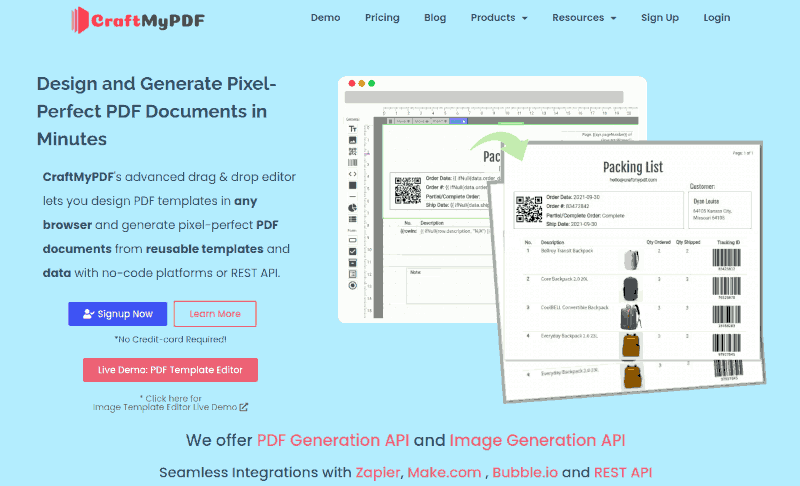
CraftMyPDF is a web-based drag-and-drop PDF template editor that allows you to create pixel-perfect PDF documents using reusable templates and data using no-code platforms or REST API. It is one of the top tools to automate PDF generation.
Now let’s look into the paperwork process you can with CraftMyPDF:
i. Logistics
Delays in transportation and logistics can put enormous strain on keeping products on hand and ready for distribution. Insufficient supply of a certain product, for example, might influence customer satisfaction and perhaps result in a loss of revenue and corporate goodwill. These challenges can be prevented by employing automated document processing technologies.
CraftMyPDF assists importers and exporters navigate the complexity of customs rules and guarantees timely cross-border delivery of products. Before an import or export may cross the border, the products must match certain standards and check numerous boxes. This was formerly done manually, which took a long time since papers had to be reviewed, sorted, relevant data located, and then manually entered into shipment entry systems.
Some of the documents in logistics include:
- Certificate of origin
- Air Waybill
- Proforma invoice
- Packing list
- Bill of lading
- International Consignment Note
ii. HR Processes
HR processes simplify operations, assure consistency, minimize the chance of mistakes, and help HR save time and money that can be better spent on strategic people projects. All of it can be done using one software, CraftMyPDF!
Some HR management tasks that can be automated using CraftMyPDF include:
- Administration, such as paperwork and standardized forms
- Payroll, which includes paychecks, salary changes, and tasks related to employee pay
- Benefits management, which includes benefits that employees can access through a self-service tool
- Email reminders, which include any notifications and memos that must be sent to employees
- New employee recruiting, includes soliciting candidates, hiring, and onboarding.
- Monitoring employee training and skill set management
- Tax paperwork, contracts, and confidentiality agreements
- Making and keeping employee records
iii. Legal Processes
By automating the administration, preparation, and approval of legal cases, CraftMyPDF shortens legal procedures and boosts professional efficiency. It includes a variety of templates for papers that attorneys use in their profession.
The software allows attorneys to speed up their workflows, spend less time on repeating cycles, and acquire information more efficiently.
In the legal profession, attorneys and businesses are frequently required to process and prepare a number of forms for each client, many of which employ repeated wording. The legal document automation program can send surveys to attorneys and utilize the answers to create the forms and complicated documents needed for processes, all while preserving sensitive client information.
The legal documents include
- Business contract
- Purchase agreement
- Non-disclosure agreement
- Mortgage agreement
- Employment contract
iv. Procurement Processes
CraftMyPDF automates procurement procedures to optimize productivity and reduce time spent on it. It expedites the procurement process by relieving personnel of time-consuming and repetitive duties.
The software lets you concentrate on mission-critical tasks like decision-making and strategy development. It improves the procure-to-pay process while lowering costs. The documents for procurement include:
- Request for proposal
- Request for quotation
- Request for information
- Purchase order
v. e-Commerce
CraftMyPDF can improve the quality of the customer experience (through segmentation and individualized products) while also allowing businesses to focus and create time for other critical tasks that involve thinking and social skills.
vi. Marketing Processes
Repetitive marketing tasks can be automated using CraftMyPDF. Marketing departments may automate routine processes like email marketing, social media posting, and even ad campaigns – not just to save time but also to deliver a more customized experience for their clients.
Integration with No-Code to Automate
No-code, short for no-code development, is a way of developing online and mobile applications that do not need the use of code.
To be honest, no-code and automation are two sides of the same coin. But, before we jump to any conclusions, let us first understand why automation is required in software development.
As a company grows, routine activities and workflows may become time-consuming, especially if the staff needs to perform everything manually. The application development technique is no different.
From early analysis to final integration, teams frequently find themselves executing the same work many times during development. In these cases, the requirement for an automated system becomes apparent. Individuals and organizations wanting to automate operations while reducing manual mistakes and interferences can benefit immensely from no-code automation.
CraftMyPDF integrates with no-code and low-code platforms such as Zapier, Make.com and Bubble.io. The integrations let you automate PDF generation for your workflows easily.
Conclusion
Automation can be helpful if you know how to work around it. CraftMyPDF makes it simple to produce standardized digital documents and allows data to flow across your systems effectively and efficiently.
You can digitize the papers that are the backbone of your business and develop vital processes that work for you with a template.

